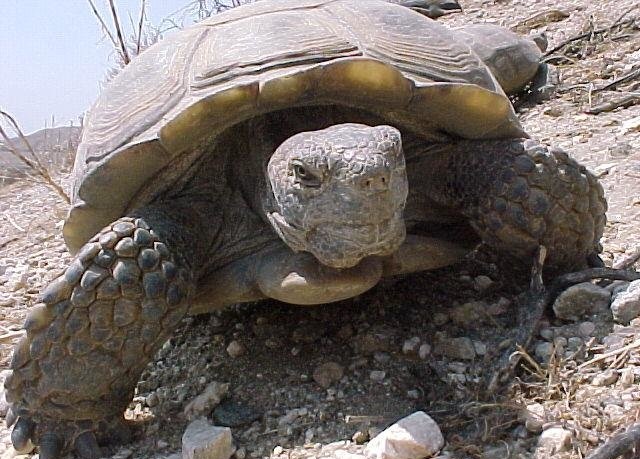Approximately 61 percent of the world’s 356 turtle species are threatened or already extinct, and the decline could have ecological consequences, according to Science Daily.
Turtles are now among the most threatened groups of vertebrate animals on earth, more so than birds, mammals, fish or amphibians. These animals outlived the dinosaurs and have roamed the earth for more than 200 million years. Reasons for the decline of turtles worldwide include habitat destruction, over-exploitation for pets and food, disease and climate change.
“Our goal is to provide resource managers with a full picture of the state of these iconic animals worldwide, and what long-term impacts our environment might experience if populations continue to decrease and species loss continues,” said scientist and lead author of the study Jeffrey Lovich. “Turtles contribute to the health of many environments, including desert, wetland, freshwater and marine ecosystems, and their decline may lead to negative effects on other species, including humans, that may not be immediately apparent.”
Scientists synthesized existing published studies to bring attention to the status of turtles and identify what may be lost from an ecological perspective if current trends hold and they continue to decline and disappear.
This paper provides the first major review of the various functional roles that large populations and diverse communities of turtles provide from an ecological perspective. This includes maintaining healthy food webs, dispersing seeds and creating habitats necessary for other species.
“Our purpose is to inform the public of the many critical ecological roles turtles perform on a global scale and bring awareness to the plight of these emblematic animals whose ancestors walked with the dinosaurs,” said professor emeritus and senior ecologist Whit Gibbons, at the University of Georgia’s Savannah River Ecology Laboratory and Odum School of Ecology. “These modern descendants of an ancient lineage are touchstones for how human influences are causing the decline of so much
Of the world’s wildlife. Our hope is that everyone will be encouraged to engage in concerted efforts to conserve their well-earned legacy as part of our natural habitats.”
Turtles can be major players in ecosystem food webs because they can be herbivores, omnivores or carnivores. They range from specialists that feed on one to a few food sources, to generalists, feeding on a wide range of items. Their diverse feeding habits allow them to influence the structure of other communities in their habitat. Some turtle species occur in dense numbers that can yield hundreds of pounds of turtles per acre, making them ecologically important by virtue of their mass alone. Such large masses of turtles equate to large amounts of potential food for organisms that feed on turtles or their eggs.
Turtles can be important for dispersing the seeds of dozens of plant species. Some turtle species may even be the primary seed dispersal agents for specific plants. Not all seeds are destroyed by the digestive tract. In fact, there are specific seeds that exhibit higher rates of germination after being eaten and passed by turtles.
Some turtles, like Agassiz’s desert tortoise and the gopher tortoise, dig deep burrows creating habitat for other species. For example, the gopher tortoise can dig burrows over 30 feet long. The mounds of soil near the entrance of the burrows can create new habitat for some plant species, increasing overall plant diversity near burrow entrances. The burrows are used by hundreds of other species including spiders, insects, snakes, amphibians, other reptiles, rabbits, foxes and even bobcats.
“The ecological importance of turtles, especially freshwater turtles, is underappreciated, and they are generally understudied by ecologists,” says Josh Ennen, research scientist. “The alarming rate of turtle disappearance could profoundly affect how ecosystems function as well as the structure of biological communities around the globe.”
“We must take the time to understand turtles, their natural history, and their importance to the environment, or risk losing them to a new reality where they don’t exist,” said scientist Mickey Agha. “Referred to as a shifting baseline, people born into a world without large numbers of long-lived reptiles, such as turtles, may accept that as the new norm.”
N.H.Kh

